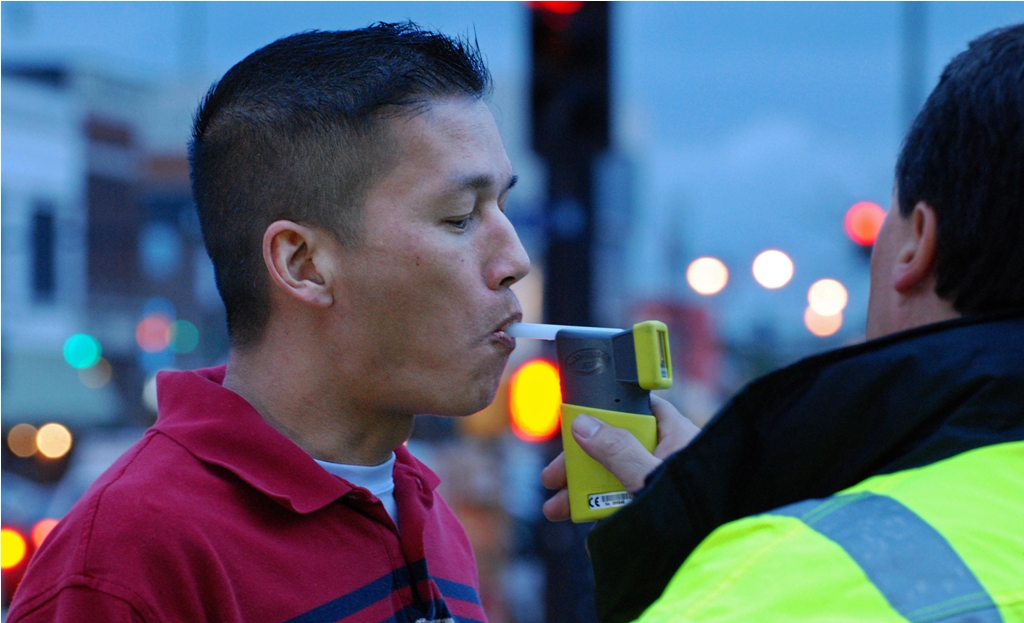In New York, DWI means “driving while intoxicated,” and it’s the legal term for driving a motor vehicle while under the influence of alcohol. If you are charged with DWI, it probably means that you failed a chemical DWI test, and you’ll need the help of a good Long Island DWI lawyer.
But what happens if you refuse to take a chemical DWI test – a blood, breathalyzer, or urine test – when a police officer requests it? Keep reading, because “refusal to test” can get you in serious legal trouble, and if that happens, you’ll also need a good DWI lawyer’s help.
When a police officer in New York suspects that a driver is impaired by drugs or alcohol, the driver may be asked to submit to a field sobriety test, which is often followed by a pre-arrest “portable breath test” (or PBT).
How Do “Implied Consent” Laws Work In New York?
New York legally requires drivers to submit to a chemical DWI test if they have been placed under arrest.
This state’s implied consent laws mean that:
1. Simply by driving in the State of New York, you’ve already implied your consent to chemical DWI testing.
2. If a New York police officer requests it, you must submit to chemical DWI testing after being placed under arrest for a drug or alcohol-related offense.
What Should You Know About Pre-Arrest “Portable” Breath Tests?
If a police officer has probable cause to believe that a motorist is intoxicated, the officer may ask the driver to submit to a portable breath test (PBT) with a handheld breathalyzer device that measures the driver’s blood alcohol content (BAC) level. The “legal limit” is a BAC level of 0.08 percent.
PBT test results are considered less reliable than the results of chemical tests at a police station using more sophisticated devices, and PBT results generally cannot be introduced as evidence at a trial, but a PBT test result can give a police officer probable cause to arrest the driver for DWI. A driver who refuses to take a roadside PBT test prior to being arrested can face consequences.
What If You Refuse To Test After A DWI Arrest?
After a driving while intoxicated arrest, a driver may be asked to test on a more sophisticated breathalyzer device – or to provide a blood or urine sample – at a police station. The results will be admissible as evidence in a DWI prosecution, and the penalty for refusing is more severe.
Regardless of whether you are convicted of driving while intoxicated, refusal to test after being arrested can trigger a one-year driver’s license suspension and a fine of $500. The fine is $750 if you’ve refused testing or if you’ve been convicted of DWI within the last five years.
Additionally, if you refuse to submit to a chemical DWI test after being arrested, your refusal can be used as evidence against you in a criminal DWI prosecution. The prosecutor can say that you knew you were guilty, and that’s why you refused to provide evidence of your guilt by testing.
Can You Be Forced To Give A Breath Or Blood Sample?
In most situations, you cannot be forced to take a chemical DWI test. However, if you were involved in an accident, and if someone was killed or seriously injured, the police can obtain an immediate court order which allows them to use force to take a sample of your blood for testing.
If you are charged with DWI and/or with refusal to test in New York – either before or after you were arrested, you must be represented by a Long Island DWI lawyer who will challenge the results of a breathalyzer exam or any other evidence the state offers against you.
You must take a driving while intoxicated charge seriously. Do not plead guilty and do not try to act as your own lawyer. Pleading guilty may look tempting as an expedient way to handle a DWI charge, but a guilty plea to driving while intoxicated charge impacts your life for years to come.
What Should You Know About Breathalyzers?
Breathalyzer devices measure the alcohol molecules in your breath and then determine the amount of alcohol in your bloodstream based on the alcohol in your breath. Breathalyzers, however, are often inaccurate, and criminal defense attorneys often successfully challenge the test results.
Substances that breathalyzer devices “read” as alcohol are in foods, beverages, medicines, toothpastes, breath fresheners, and mouthwashes. Even your cologne or perfume could be mistaken for alcohol by a breathalyzer device.
Several medical conditions can also distort a breathalyzer test result including gastrointestinal reflux disease, acid reflux, and heartburn.
Moreover, breathalyzers frequently malfunction. The devices must be routinely maintained and calibrated. Officers who conduct breathalyzer examinations must be trained to use the devices properly and to follow established guidelines for breathalyzer tests.
What Are The Penalties For DWI Convictions?
DWI is usually a misdemeanor in New York. A first DWI conviction is punishable with up to a year in jail and/or a fine of $500 to $1,000, along with a three-year probation period and a six-month driver’s license revocation. There’s also a surcharge and a fee for aid to crime victims.
As you might imagine, subsequent convictions for driving while intoxicated in New York will result in increasingly harsher penalties. And while the legal penalties are considerable, you should also consider the extra-legal repercussions of a DWI conviction:
1. Your automobile insurance rates will increase.
2. If you are employed as a driver, or if driving is essential to your job, you may have trouble keeping or finding employment.
3. If you hold a professional license, a DWI conviction will probably lead to disciplinary action by your professional licensing board.
What’s The Best Strategy For Drivers In New York?
There is only one sure way to avoid DWI trouble. Don’t drink and drive. If you plan to drink away from home, take Uber or Lyft, call a taxi or a limo, arrange for a designated driver, get a room for the night, or arrange to sleep on a friend’s spare bed or sofa.
If you are arrested and charged with driving while intoxicated, a New York DWI attorney will protect your rights, guide you through the legal process, fight for the justice you need, and bring your case to its best possible outcome.















Comments are closed.